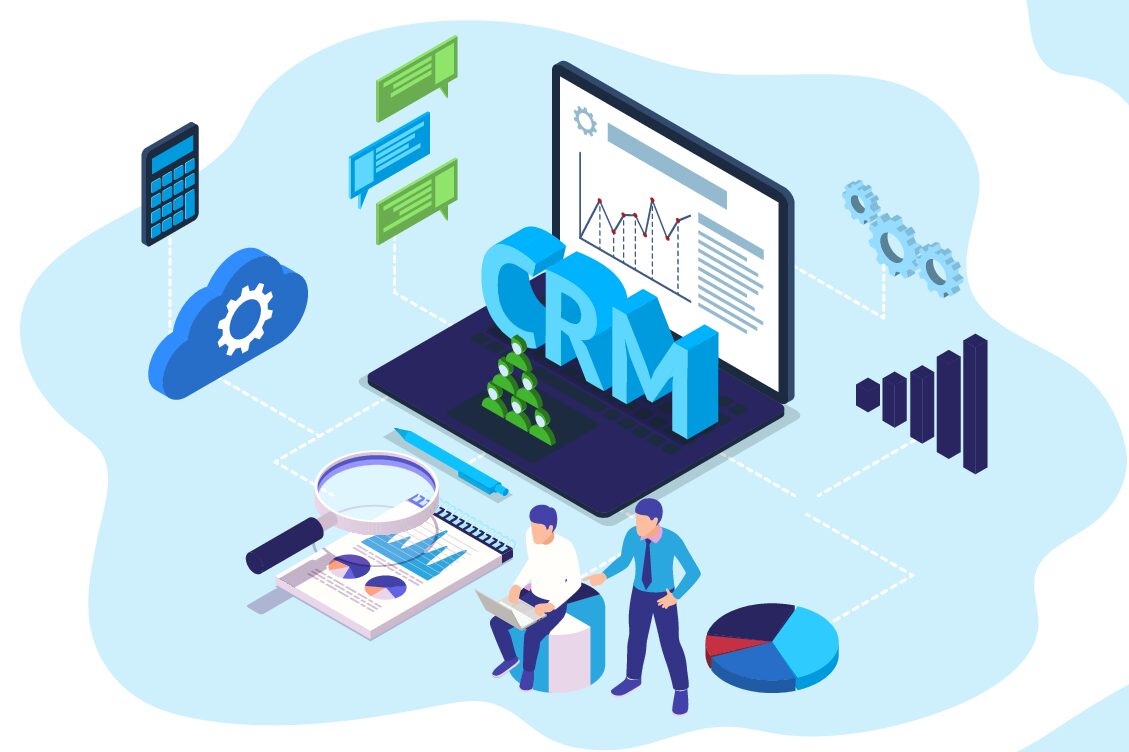We don’t have to tell you that successfully managing a law firm is about so much more than becoming an expert in your chosen legal practice area. While subject matter knowledge is a critical aspect of navigating any client’s legal matter, it’s not enough on its own. To keep things running smoothly, you also need sharp decision-making skills and a knack for strategy.
That’s because, even with years of experience behind you, managing partners need to make many decisions each day, and it can be tricky—and time-consuming—to navigate them all.
Fortunately, modern attorneys have an arsenal of tech tools available to help them streamline management tasks and fine-tune their decision-making processes. And when it comes to business intelligence, few tools compare to the wealth of information collected and stored within legal client relationship management (CRM) software.
What is business intelligence software?
Ask yourself the following, and be honest:
- Is your legal staff providing the most effective client service to new and prospective clients?
- Are you spending too much money on marketing?
- Could better communication speed up your billing cycles?
Many managing partners can see the signs that these common challenges are present at their firm, but they aren’t quite sure where the root of each issue lies, not to mention the steps they can take to improve them.
That’s where business intelligence comes in.
From attracting higher-paying legal clients to spending less non-billable time on client intake, you can use the goldmine of data stored in your legal CRM to improve your firm’s daily operations, boosting accuracy and certainty.
Over time, you should see that making data-driven decisions about your law firm leads to:
- Increased client satisfaction
- Improved cash flow
- Better marketing ROI
- More streamlined client intake
Four areas where CRM business intelligence can make your law firm more successful
To understand how the data you collect in your CRM improves your firm, it’s important to first understand what a CRM does. Legal CRMs, such as Law Ruler, act as an all-in-one communication station for your law firm.
You can use your CRM to:
- Store all client interactions for easy reference
- Send billing and invoicing information to clients
- Manage email marketing campaigns
- Track how (and how often) attorneys reach out to clients
- And more
Each of these uses generates data over time—actionable data that you can use to run your firm in a more profitable, intentional manner. Four key areas for improvement using CRM are client satisfaction, billing, marketing, and intake.
1. Client satisfaction
When you have a clear record of the phone calls, text messages, and emails exchanged between your firm and its clients, it’s easy to identify patterns in client behavior and hone in on preferences. For example, you may notice that one particular client prefers to communicate via email and another favors the phone. When you shift their outreach approach accordingly, you should see client satisfaction—and retention—rise.
Some legal CRMs also help you stay on top of important deadlines, from eliminating double bookings on your appointment schedule to tracking whether clients have submitted the necessary documentation during intake. When you reduce confusion over deadlines and deliverables, your clients will feel more secure in the work you’re doing for them.
2. Billing and cash flow
Is your billing lifecycle longer than you’d like? Maybe it’s time to think outside the mailbox!
For example, do your clients respond more quickly to text messages than client portal notifications? If so, consider leveraging your CRM to support your billing and cash flow processes. You may be able to create secure payment links within your legal billing software, which can then be sent via text to your clients.
FREE Legal Billing Terms Cheat Sheet
Legal billing terms can be confusing.
TimeSolv has prepared a list of the most commonly used legal billing terms that lawyers use in routine. It's a must to have it in your pinned files, sticky notes, or however you carry your essentials while practicing.
Download our cheat sheet and get all the information you need!
3. Marketing ROI
Your CRM is the perfect software to execute legal marketing strategies like email drip campaigns. And because every client communication is stored automatically, it’s easy to track the success rates of these campaigns.
Over time, this data allows you to determine which marketing campaigns best resonate with your target market. From there, you can refine your overall marketing strategy to generate more leads with less time and money.
4. Client intake
Have you ever had a potential client who was keen to work with your firm, and then changed their mind seemingly “out of nowhere” during the client intake stage?
Who communicated with them last? What did that communication entail? What stage was the client at in the intake process? This information can provide valuable insights. For example, you may be able to infer that they were overwhelmed by the process and identify ways to simplify how you serve new clients.
The information stored within your CRM helps you answer these questions and many more, so you can identify opportunities for improvement and prevent similar situations from happening again.
Take advantage of the best law firm business intelligence by integrating TimeSolv and Law Ruler
By collecting and organizing data effectively, analyzing it to identify trends and patterns, using it to drive decision-making, and monitoring performance, you can improve your firm’s operations and profitability. Leveraging business intelligence from your CRM software is essential to keeping your law firm ahead of the competition—especially when it comes to marketing and client service.
And when it comes to business intelligence for everything else? Trust TimeSolv.
When you integrate TimeSolv with Law Ruler, not only do you streamline your legal practice’s daily operations, but you also gain access to the firm-changing business intelligence described above and an additional 31 financial, expense, time, and productivity reports.
Our friendly product experts are happy to demonstrate how TimeSolv integrates with Law Ruler to create an efficient, comprehensive solution for managing your law firm. Contact us today to start your free trial of TimeSolv.
FREE Legal Billing Terms Cheat Sheet
Legal billing terms can be confusing.
TimeSolv has prepared a list of the most commonly used legal billing terms that lawyers use in routine. It's a must to have it in your pinned files, sticky notes, or however you carry your essentials while practicing.
Download our cheat sheet and get all the information you need!














